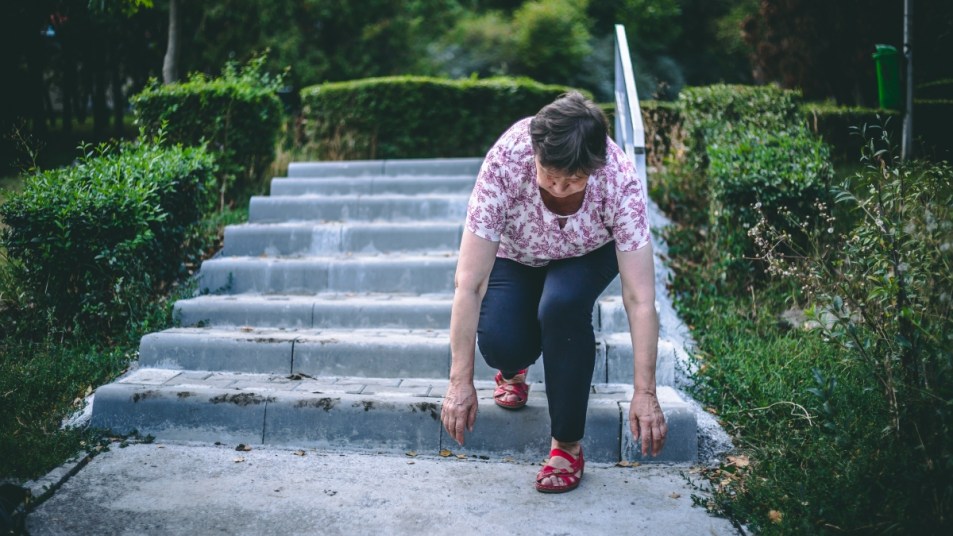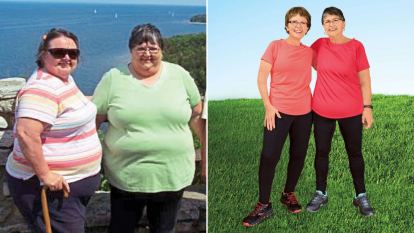Science Says Falls Are More Frequent in Spring — Here’s How To Reduce Your Risk With Better Balance
Leave the falls behind.

Did you know that your risk of falling may increase in the spring? According to 2021 research from Johns Hopkins University, fall risk among people with glaucoma, aged 57 or older, increased by 24 percent when the weather got warmer. Why might this be? People tend to venture outside in the warmer weather, and the outside poses some risk — especially when the ground is wet and uneven. But don’t let that news stop you from getting some sun. Taking a walk outside, even if it’s just around the block, can do wonders for your long-term well-being. These tricks below may keep you steady on your feet. Plus, each has a hidden health bonus.
Play go-fetch with your dog.
Spend a few minutes a day playing fetch with your pup or simply bouncing a tennis ball against the wall, and you may lower your risk of taking a tumble. The theory is based on Penn State University research, which found that the hand-eye coordination required to toss a ball strengthens connections within the brain responsible for keeping you steady on your feet. Bonus: Watching the ball move from side to side may improve both near and distance vision, as demonstrated by University of California research.
Wear your dentures, if you have them.
As shown in 2012 research from the Kanagawa Dental College in Japan, people who had missing teeth but failed to wear their dentures were 2.5 times more likely to fall. The reason? The researchers theorize that the position of the jaw and the body’s center of gravity become unstable. This can result in poor balance, which leads to falls.
So, take care of your teeth as best you can (visit the dentist whenever a problem crops up), and wear your dentures if you have them — they will keep your jaw in the right position. A bonus of taking care of your oral health: Keeping your gums healthy helps block the formation of harmful plaques in the brain, which prevents gum disease and may reduce your Alzheimer’s risk.
Spritz rosemary on your pillow.
Misting your pillow with rosemary water before bed may help lower your risk of a next-day fall. The theory is based on several studies: Research in PLOS ONE, for instance, found that aromatherapy improved cognitive dysfunction in mice. Additional research published in Frontiers in Neuroscience states that rosemary may have a neuro-protective effect, and could help treat Alzheimer’s disease. Cognitive decline is linked to an increased risk of falling, so finding ways to protect your brain health is very important.
To try this yourself, add 4 drops of rosemary essential oil to a mister bottle filled with water and spritz. Bonus: Spritz your scalp, too, and you may boost your hair growth.
This content is not a substitute for professional medical advice or diagnosis. Always consult your physician before pursuing any treatment plan.













